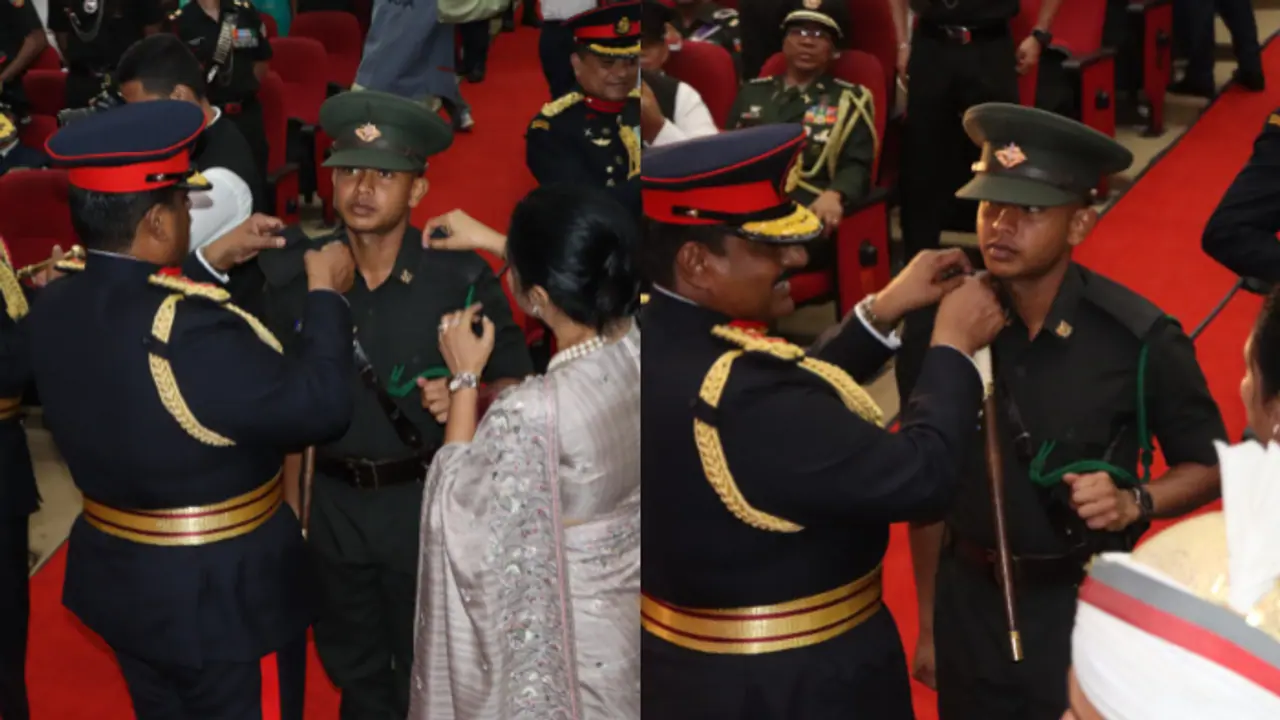At the 156th IMA Passing Out Parade, 667 cadets, including 32 from 9 foreign countries and 2 Sri Lankans, were commissioned. Lt Gen Lasantha Rodrigo's presence highlighted India's regional military diplomacy and leadership role.
New Delhi: The 156th Passing Out Parade of the Indian Military Academy (IMA) in Dehradun on Saturday marked another historic milestone in the institution’s international outreach, as two Sri Lankan officer cadets — including RMNL Rathnayake, son of Brigadier RMSP Rathnayake —were commissioned into the Sri Lanka Army.

Their inclusion brings the total number of Sri Lankan officers commissioned from the IMA to 296, underscoring India’s long-standing role in shaping military leadership across the region.
In total, 667 cadets — including 451 from the 156 Regular Course, 45 from the Technical Entry Scheme, and 139 from the Technical Graduate Course and Special Commissioned Officers (SCO-54) — were commissioned as officers during the June 14 ceremony.
Thirty-two of those cadets hailed from nine friendly foreign countries.
A Powerful Homecoming for Sri Lanka Army Chief
Presiding over the ceremony as Reviewing Officer was Lieutenant General BKGM Lasantha Rodrigo, Commander of the Sri Lanka Army, who himself was commissioned from the IMA in December 1990 as part of the 87th Course.
His return to the academy, this time to witness the commissioning of a new generation — including his fellow countrymen — was marked by deep personal significance.
Addressing the cadets, Lt Gen Rodrigo described the occasion as a "profoundly emotional homecoming" and urged the young officers to embrace the military not just as a profession, but as a lifelong commitment to service, responsibility, and leadership.
India’s Role in Regional Military Leadership
Beyond officer commissioning, the IMA remains a key node in India’s broader defence cooperation framework.
The Indian Army supports foreign military leadership through a wide range of initiatives: hosting bilateral and multilateral exercises, deploying training missions abroad — such as the Indian Military Training Team (IMTRAT) in Bhutan — and offering specialized training programs, including those tailored for ASEAN female officers and technical staff.
Institutions like the Defence Services Staff College, Counter-Insurgency and Jungle Warfare School, Infantry School, and School of Artillery also serve as platforms for regional capacity building.
High-level defence dialogues and joint planning efforts further reinforce these ties, cultivating a shared strategic vision among friendly foreign armies.
The commissioning of the two Sri Lankan cadets not only adds to this tradition but strengthens India’s enduring commitment to regional peace, professionalism, and interoperability through military diplomacy.


